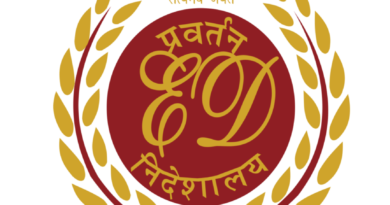Hijab Row: PIL In Apex Court Seeking to Implement Common Dress Code in Order to Promote Fraternity Dignity Unity and National Integration.
(Judicial Quest News Network)
A Lawyer moved Supreme Court today in the wake of the Karnataka Hijab controversy and seeks a direction to the Centre, States and Union Territories to implement a common dress code for staffers and students in registered educational institutions for securing equality and promoting fraternity and National integration.
The PIL is filed by Nikhil Upadhyay through lawyers Ashwini Upadhyay and Ashwini Dubey in the Supreme Court seeking a direction to the Centre to constitute a Judicial Commission or an Expert Committee to suggest steps to inculcate the values of social economic justice and socialism secularism and democracy and to promote fraternity dignity unity and national integration among the students.
The petitioner further contended that Petitioner submits that Common Dress Code is not only necessary to maintain uniformity but also to instil a sense of camaraderie among students from different caste, creed, faith, religion, culture and place. Petitioner respectfully submits that State recognized schools-colleges must strictly implement Common Dress Code in order to promote fraternity dignity unity and national integration
It is also contended that in countries like US, UK, France, Singapore and China, all Schools and Colleges adhere to Common Dress Code despite frequent challenges to the constitutionality of dress guidelines. Most Court rulings support the Common Dress Code because the use of common dress code has many benefits.
Common Dress Code not only reduces violence but also promotes a more positive educational environment. It ensures that every student looks relatively same which reduces the chances of bullying in schools. It helps students stay focused on their studies. When students wear same dress, then there are fewer concerns with how each person can fit in with their peers. Creating uniformity on campus with clothing reduces visual comparisons that students make about the socio-economic status of each person.
It is also pointed out that alternatively, being custodian of the Constitution and protector of fundamental rights, direct the Law Commission of India to prepare a report suggesting steps to secure social equality and to promote fraternity dignity unity and national integration within 3 months
educational institutions are secular public places and are meant to impart knowledge and wisdom employment, good health and contribute to nation building, not to follow essential and non-essential religious practices. It is very essential to introduce a Common Dress Code in all Schools-Colleges to preserve the secular character of educational institutions, otherwise tomorrow Naga Sadhus may take admission in colleges and attend the class without clothes citing essential religious practice. Petitioner submits that Common Dress Code is not only necessary to maintain uniformity but also to instill a sense of camaraderie among students from different caste, creed, faith, religion, culture and place.
The Hijab Controversy has spread to other educational institutions in the different parts of the State. And the protest took a violent turn at some places earlier this week promoting the government on Tuesday to declare a three day holiday for institutions.



